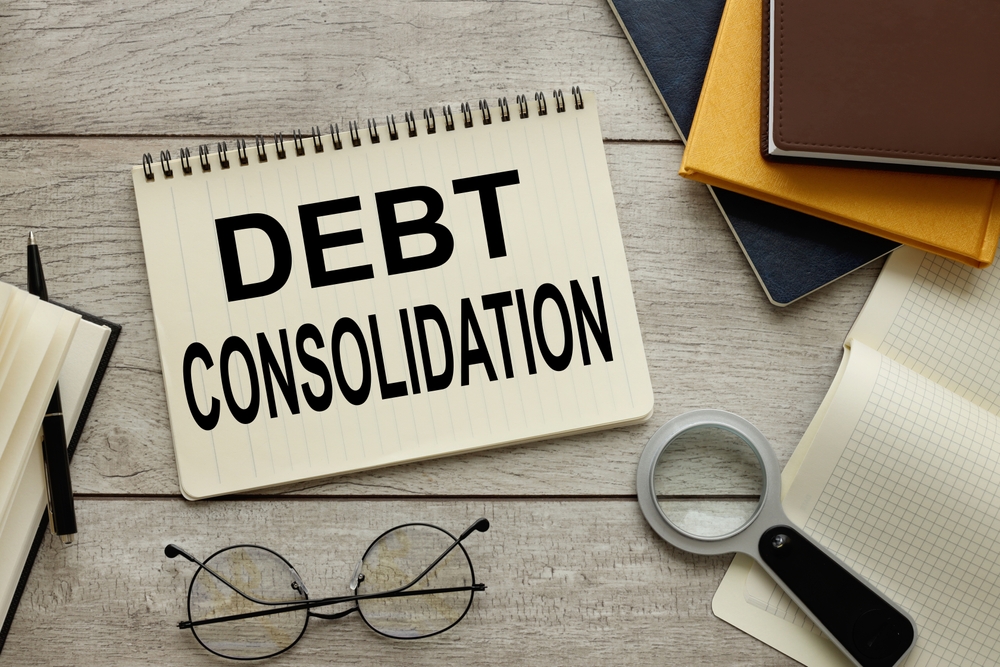You’re about to take out a personal loan, but do you know the risks and rewards? You’ll get quick access to cash, but beware of hidden fees and charges that can add up. Your credit score will impact approval and interest rates, and debt consolidation can be a temporary fix, not a long-term solution. High-interest rates can lead to more debt, and unsecured loans come with higher interest rates. To avoid debt spirals, you need a repayment plan and responsible borrowing strategies. Consider alternative funding options and prioritize financial goals. The key to success lies in understanding the fine print – what’s hiding beneath the surface of your loan agreement?
Key Takeaways
Personal loans can provide quick access to cash in emergencies, but beware of hidden costs and fees that can add up quickly.
Your credit score significantly impacts loan approval and interest rates, so maintain a healthy credit score through timely payments and regular checks.
Debt consolidation through personal loans can provide temporary relief, but it’s essential to address underlying spending habits to avoid accumulating more debt.
Be aware of high-interest rates and prioritize paying off the principal amount quickly to avoid excessive interest payments over time.
Responsible borrowing strategies, such as prioritizing financial goals and creating a budget with loan repayments, can help you reap the rewards of personal loans.
The Allure of Quick Cash
When you’re faced with a sudden expense or financial emergency, the promise of quick cash from a personal loan can be tantalizing, especially when every minute counts and your bank account is running on fumes. You’re not alone in feeling the pressure to act fast and find a solution. In times of financial stress, it’s natural to seek a quick fix to get back on track. That’s why personal loans can be so appealing – they offer the promise of immediate relief and a sense of control over your finances.
But before you jump at the opportunity, take a step back and assess your situation. Ask yourself if you’ve explored all other options, such as dipping into your emergency fund or cutting back on discretionary spending. Consider whether the loan will truly solve your financial problem or just temporarily mask the symptoms.
Hidden Fees and Charges
You need to scrutinize the fine print of your loan agreement, as hidden fees and charges can quietly drain your wallet, adding hundreds or even thousands of dollars to your total repayment amount. Lenders often bury these extra costs deep within the contract, hoping you won’t notice. Don’t fall victim to their tactics! Take the time to review every line item, and ask questions if you’re unsure.
Common hidden fees include origination fees, late payment fees, and interest rate hikes. Some lenders even charge you for paying off your loan too quickly, known as a prepayment penalty.
It’s essential to factor these costs into your overall borrowing strategy, as they can significantly increase the total cost of your loan.
Credit Score Impact Analysis
As you navigate the personal loan landscape, your credit score becomes a critical factor, influencing not only your loan approval but also the interest rate you’ll pay. A good credit score can open doors to better loan terms, while a poor score can lead to higher interest rates or even loan denial.
You’ll want to check your credit report regularly to ensure accuracy and dispute any errors that could be harming your score.
When you apply for a personal loan, the lender will perform a hard inquiry, which can cause a temporary dip in your credit score. However, making timely payments on your loan can help improve your credit utilization ratio and payment history, ultimately boosting your score over time.
Conversely, missing payments or defaulting on your loan can significantly lower your credit score, making it harder to secure credit in the future. It’s essential to borrow responsibly and make payments on time to avoid damaging your credit score. By doing so, you’ll not only maintain a healthy credit score but also enjoy better loan terms and lower interest rates.
Debt Consolidation Dangers
Consolidating multiple debts into one loan can seem like a convenient solution, but beware: it can also lead to a false sense of security, causing you to accumulate even more debt. You might think you’re simplifying your finances, but you’re actually creating a new, potentially larger debt obligation. This can be especially dangerous if you’re not addressing the underlying spending habits that got you into debt in the first place.
When you consolidate your debts, you might feel a temporary sense of relief, but you’re not solving the root problem. In fact, you might be tempted to take on even more debt, thinking you’ve got a clean slate. Don’t fall for it! Consolidating debt without changing your spending habits is like putting a Band-Aid on a broken leg – it won’t fix the underlying issue.
You need to tackle the real problem: your spending habits. Take a hard look at your budget and identify areas where you can cut back. Make a plan to pay off your debt for good, not just consolidate it into a new loan. Your financial future depends on it.
High-Interest Rate Pitfalls
Sky-high interest rates can silently sabotage your debt repayment plans, quietly racking up charges that leave you drowning in a sea of financial woes. You might think you’re getting a good deal, but those high-interest rates can quickly add up, making it difficult to pay off your loan.
Before you know it, you’re stuck in a debt cycle that’s hard to escape. High-interest rates can also lead to a false sense of security. You might feel like you’re making progress on your loan, but in reality, most of your payment is going towards interest, not the principal amount. This means you’re not making as much progress as you think, and it’ll take you longer to pay off your loan.
To avoid this trap, make sure you understand the interest rate on your loan and calculate how much you’ll pay in interest over the life of the loan. Don’t be tempted by low monthly payments that come with high-interest rates.
Instead, prioritize loans with lower interest rates and focus on paying off the principal amount as quickly as possible. Your financial future depends on it.
Loan Term and Repayment
You need to carefully consider the loan term and repayment schedule to avoid getting stuck in a prolonged debt cycle, especially when you’re trying to escape the high-interest rate trap. A longer loan term might seem appealing because of lower monthly payments, but it can lead to paying more in interest over time. On the other hand, a shorter loan term can save you money on interest, but you’ll need to be prepared for higher monthly payments.
You should also think about the repayment schedule. Will you be able to make consistent payments, or will you need flexibility? Some lenders offer flexible repayment plans, which can be helpful if you’re unsure about your financial situation. Additionally, consider whether you’ll be charged any fees for early repayment.
Understanding the loan term and repayment schedule is crucial to avoiding debt traps and achieving financial freedom. By carefully evaluating these factors, you can make an informed decision that works best for your financial situation.
Unsecured Loans Risks
When you opt for an unsecured loan, your credit score becomes the lender’s sole collateral, placing immense pressure on your financial reputation. You’re essentially putting your creditworthiness on the line, and any misstep can have long-term consequences.
If you default on the loan, your credit score will take a hit, making it harder to secure credit in the future.
Moreover, unsecured loans often come with higher interest rates to compensate for the lender’s increased risk. This means you’ll pay more in interest over the life of the loan, adding to your overall debt burden. And if you’re unable to make timely payments, you may be slapped with late fees and penalties, further exacerbating the problem.
It’s crucial to carefully weigh the risks and rewards of an unsecured loan before signing on the dotted line.
Can you realistically afford the monthly payments? Do you have a plan in place to repay the loan quickly?
Taking on an unsecured loan is a serious commitment, and you must be prepared to face the potential consequences.
Secured Loans Downsides
One major drawback of secured loans is that they put your assets at risk of repossession if you default on payments. If you’re unable to make payments, the lender can seize your assets, which can be devastating. You stand to lose the very things you’re trying to protect, such as your home or car. This can cause significant emotional distress and financial hardship.
Another downside of secured loans is that they often have longer repayment periods. This means you’ll be paying interest for a longer period, which can add up quickly. You may end up paying more in interest than you’d with an unsecured loan, making it a more expensive option in the long run.
Additionally, secured loans can have higher fees associated with them, such as origination fees and late payment fees. These fees can add up quickly, making it even more difficult to pay off the loan.
You need to carefully consider these risks before taking out a secured loan, and make sure you understand the terms and conditions before signing on the dotted line.
Alternative Funding Options
Considering the risks associated with secured loans, it’s essential to explore alternative funding options that can provide a safer and more affordable way to access the money you need.
You don’t have to put your assets on the line to get the funds you require. One option is to consider unsecured personal loans, which don’t require collateral but may have higher interest rates.
You can also look into peer-to-peer lending, where you borrow from individuals rather than institutions. Additionally, credit unions and online lenders often offer more competitive rates and terms than traditional banks.
Another option is to tap into your emergency fund or savings, if you have one. If you’re a homeowner, you might consider a home equity line of credit, which can provide a lower-interest alternative to secured loans.
Whatever option you choose, make sure you understand the terms and conditions before committing. By exploring these alternatives, you can find a funding solution that meets your needs without putting your assets at risk.
Responsible Borrowing Strategies
Now that you’ve explored alternative funding options, it’s time to focus on responsible borrowing strategies that will help you make the most of your loan and avoid financial pitfalls.
You must prioritize your financial goals and create a budget that accounts for loan repayments. It’s crucial to borrow only what you need, avoiding excessive debt that can lead to financial distress.
Set a realistic repayment timeline, and consider automating your payments to ensure consistency.
Don’t fall into the trap of overspending, and avoid using your loan for discretionary purchases. Instead, focus on using the loan to achieve your financial objectives, such as consolidating debt or financing a necessary expense.
Frequently Asked Questions
Can I Use a Personal Loan to Invest in the Stock Market?
You’re considering using a personal loan to invest in the stock market, but beware – it’s a risky move that could leave you in debt if your investments don’t pan out as planned.
Do Personal Loans Affect My Credit Utilization Ratio?
You’re wondering if personal loans affect your credit utilization ratio. Yes, they do! When you take out a personal loan, it’s considered debt, and lenders consider it when calculating your credit utilization ratio, impacting your credit score.
Can I Take Out a Personal Loan if I’m Self-Employed?
As a self-employed individual, you can take out a personal loan, but be prepared to provide additional documentation, like tax returns and business financials, to prove your income and creditworthiness to lenders.
Are Personal Loans Taxable if Used for Business Expenses?
You’re wondering if personal loans used for business expenses are taxable? Generally, no, they aren’t, since loans aren’t considered income; however, you’ll need to separate personal and business expenses for accurate tax reporting.
Can I Use a Personal Loan to Pay off a Student Loan?
You can use a personal loan to pay off a student loan, but be cautious: you’ll swap lower-interest student loan debt for a potentially higher-interest personal loan, so crunch the numbers carefully before making the switch.
Conclusion
You’ve weighed the pros and cons of personal loans, now it’s time to decide. Remember, quick cash can come with long-term costs. Be cautious of hidden fees, credit score dings, and debt consolidation dangers.
Weigh the risks of high-interest rates, unsecured loans, and secured loans carefully. Consider alternative funding options and responsible borrowing strategies to avoid financial pitfalls. Your financial future depends on it – borrow wisely.



